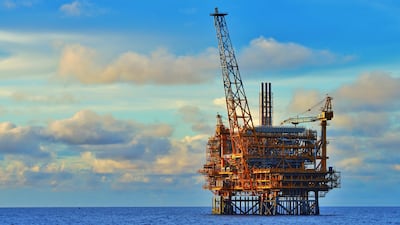Mubadala Energy, the oil and gas unit of Abu Dhabi’s Mubadala Investment Company, on Monday announced a “substantial” gas discovery off Indonesia.
The discovery was made from the Tangkulo-1 exploration well, which was drilled in South Andaman, about 65km offshore from North Sumatra, Mubadala Energy said in a statement.
Despite limitations imposed by testing facilities, the well's estimated capacity is between 80 million to 100 million standard cubic feet a day and more than 2,000 barrels of condensate, the company said.
Mubadala Energy’s latest find follows the company's major deep-sea gas reserve discovery in Indonesia's South Andaman block last year.
At the time of the discovery, the company said that through the Layaran-1 exploration well, it had identified the potential for more than 6 trillion cubic feet (tcf) of gas-in-place.
“When added to our recent success at Layaran-1, this game-changing discovery promises to transform Indonesia’s and South-east Asia’s energy landscape and demonstrates that South Andaman is one of the world’s most exciting energy plays,” said Mansoor Al Hamed, the chief executive of Mubadala Energy.
“By working with partners and harnessing our world class technical capabilities, I am confident we can realise the full potential of this block.”
With an 80 per cent working interest in South Andaman, Mubadala Energy is the largest net acreage holder in the area.
The latest find adds to the significant volume of potential resources and provides a platform for the company's “continued organic growth in the region through additional exploration and appraisal activities”, Mubadala Energy said.
“Tangkulo-1 is an important pillar in the cluster’s development story, with the discovery unlocking further potential in the southern part of the block and indicating an additional multi- (trillion cubic feet) of prospective gas resource in nearby structures.”
Mubadala Energy, which was previously known as Mubadala Petroleum, has been operating in Indonesia since 2004. It has assets and operations spanning 11 countries, primarily in the Mena region, Russia and South-east Asia.
Several countries are looking to substitute coal with natural gas, which is considered a cleaner fossil fuel compared to coal.
Indonesia, one of the world's largest coal exporters and the biggest economy in South-east Asia, plans to generate at least 51 per cent of its total energy from renewable sources by 2030.
The country also aims to become carbon neutral by 2060 or sooner, with renewable energy providing up to 85 per cent of the energy mix.
Global coal demand is set to drop next year and “plateau” through 2026, according to the International Energy Agency, which regards the shift as a “historic turning point”.
Coal consumption is projected to fall by 2.3 per cent in 2026, driven by a major expansion of renewable energy capacity in the next three years, the agency said in its annual coal market report in December.























